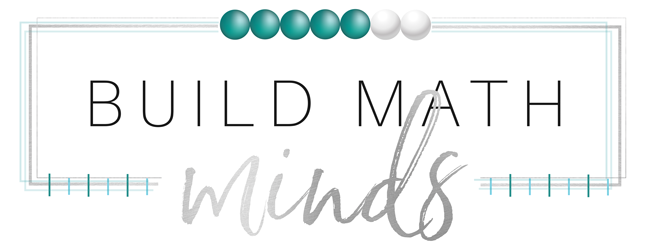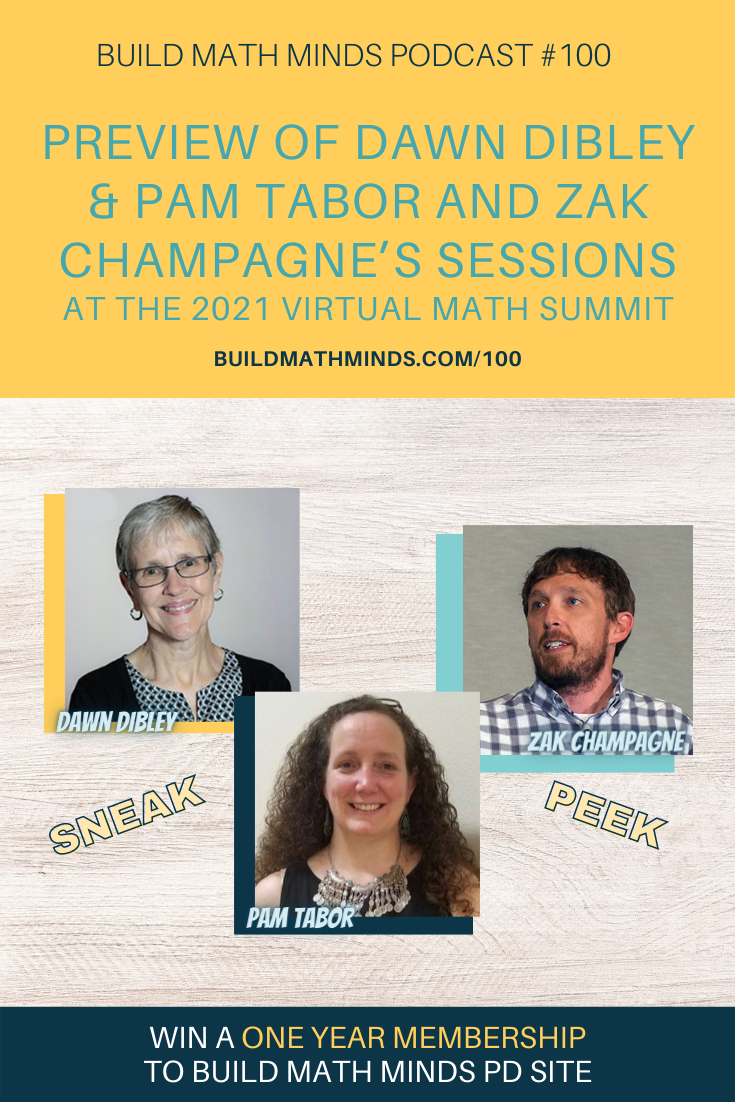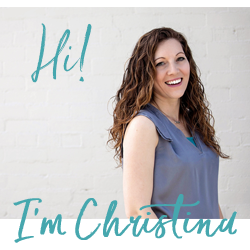Resources mentioned in this episode:
Register for the Virtual Math Summit 2021
Look at the list of all the Virtual Math Summit speakers
**Scroll down to the bottom of the post to find the details for the 100th episode giveaway!!**
Welcome fellow Recovering Traditionalists to Episode 100. Today you are getting a Preview of Dawn Dibley & Pam Tabor and Zak Champagne’s sessions at the 2021 Virtual Math Summit.
Welcome to Build Math Minds the podcast, where fidelity to your students is greater than fidelity to your textbook. I’m your host, Christina Tondevold, the recovering traditionalist and BuildMathMinds.com Founder, where my mission is to change the way we teach elementary math to our kiddos. Are you ready to start building math minds and not just creating calculators? Let’s get started.
What!?!? Is it really episode 100! It’s still hard for me to believe that I even have a podcast because I remember telling many people I would never do a podcast because math is so visual and people need to see the things I’m talking about, and now here I am 100 episodes into a podcast that I never thought would ever even be.
So to celebrate, I’m giving away a year membership to the Build Math Minds PD site. If you would like access to hundreds of professional development videos specifically for elementary math, enter to win access to the PD site for a year at the bottom of this page. The year membership is worth $468 and even current members are eligible to win.
One thing you will find inside the Build Math Minds PD site are recordings from all the past Virtual Math Summits. This year is the 5th year for the summit.
The 2021 Virtual Math Summit will be July 29th and 30th. As I watch through the sessions (which are all pre-recorded), I’m picking out a snippet of each session to share with you.
Here’s your sneak peeks for this week.
Our first sneak peek is Dawn Dibley and Pam Tabor’s. They are co-presenting on Constructing Mathematical Understanding for ALL Learners.
Dawn and Pam both work for US Math Recovery, and what I love about this session is that Dawn and Pam took things that are being used in math class and showed how to take it a step further or how to modify them, to make them accessible for all kids. For example, have you ever wondered how a child who’s blind or has vision issues would be able to use a rekenrek? Well, Dawn and Pam have figured it out. They even share many of my resources and kind of kick it up a notch to ensure that they’re helpful for all learners. And they give us practical ideas on how all students can benefit from constructivist, student-centered teaching.
Dawn Dibley: Because of our limiting beliefs about students with disabilities, the behaviors we look for in behaviors teaching often involve rote memorization. For example, memorizing basic backs or correctly following the procedure for an algorithm.
Pam Tabor: Constructivists aim to … for applicable, profound, conceptual understanding with which students may engage with novel problems. Constructivists do, however, acknowledge that some knowledge is conventional rather than conceptual and must be told to the student. For example, the words we use to name numbers and the symbols we use to represent those numbers are cultural conventions. The only way I can learn those conventions is if someone else tells me or I read about them. For this type of declarative conventional knowledge, the constructivist teacher might employ methods similar to those used by a behaviorist. During these times, the students often will be engaged in rehearsal mode rather than problem-solving tasks.
Dawn Dibley: Traditionally, most students with disabilities have been taught using a behaviorist perspective. Individual education programs, IEPs, require observable and measurable goals and objectives, which leads to teaching that will elicit specific and measurable behaviors. Most research on teaching students with disabilities also promotes behaviorism. One possible reason for this is that it’s easier to conduct randomized control trial research when you can control for fidelity of implementation through the use of scripted lessons and have specific, measurable behaviors as outcomes. We acknowledged that it’s difficult to conduct large-scale research projects that incorporate constructivist teaching and learning.
Pam Tabor: Actually, we believe constructivism can be effective for all learners. We’ve seen it work with students with a range of abilities and challenges. Critical to this success, however, is starting with assessment and then employing ongoing formative assessment continually.
Up next is a piece from Zak Champagne’s session, Playing the Long Game.
I always love learning from Zak and in his session this summer he shares with us some of the things he has learned as he went ‘forward’ into the classroom. I love how it puts it, he didn’t go ‘back’ into the classroom after being at a university, he went ‘forward’ and he has some great insights to share from this past year as he also gives us his 5 core teaching beliefs.
Zak Champagne: That for me, “the long game” is not only about the entire year or multi years that you get with the kid, but the fact that those kids leave our classrooms and they have a long mathematical journey ahead of them, right? They’re going to keep engaging and having more mathematical experiences that we won’t be a part of, and we have to trust our colleagues. We have to trust the system, which is scary at times, to continue that, right, to keep working for that kid or all of those kids in your class because it is a long game. You’re not going to fix everything in one year. And so I have to remind myself, every day in my classroom right now, that I’m not aiming for a touchdown every time. I’m just aiming to keep each of my amazing kiddos moving forward at their own pace, right?
Zak Champagne: And they’re on their own mathematical trajectories, and they’re all different. And my job is to help them continuing to move forward, right, both in the micro scale of what happens on a given day, like the story of Kira and on a macroscale of the school year and then, multi-school years as they continue going on. And so that leads me, that whole framing there around the “long game” is where everything from the rest of this talk is going to sit and live. It’s going to live underneath that idea that we have time, right? I know we feel like we don’t, but we have more time than we give ourselves, sometimes. Right? And so for me, I think about that and that idea framed what I call my “5 core teaching beliefs,” and those five core teaching beliefs are this, right? And this is what we’re going to talk about today. I’m going to go through each of these 5 in more details, but I want to just give them to you right now. These are my five core teaching beliefs. Number one, it’s okay to walk away from a math problem.
If you want to watch these entire presentations (and hear Zak’s full story about Kiera) make sure you go get registered for the summit at VirtualMathSummit.com/register.
Many of the presenters will be there interacting with participants in the chat area and this year we even have an upgraded experience where you can ask questions of presenters during a few speaker panel Q & As.
The Virtual Math Summit has always been free to attend for 10 days but if you want extended access and more interaction with presenters go over to virtualmathsummit.com/register to see the options for upgrading your VMS experience.
Don’t forget to enter for your chance to win a year membership to the Build Math Minds PD site.
Subscribe and Review in iTunes
While you’re there, don’t forget to leave a review on iTunes too. I would love to know your thoughts and how we can make sure that we give you content that you will really enjoy.
To leave a review, head over to iTunes and click on “Ratings and Reviews” and “Write a Review.” I can’t wait to hear your thoughts about the podcast.




